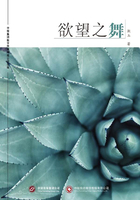Five years more passed, dating from the day when the deserted wife was laid in her grave. It was now the year eighteen hundred and sixty six.
On a certain day in that year two special items of news appeared in the papers--the news of an elevation to the peerage, and the news of a suicide.
Getting on well at the Bar, Mr. Delamayn got on better still in Parliament. He became one of the prominent men in the House.
Spoke clearly, sensibly, and modestly, and was never too long.
Held the House, where men of higher abilities "bored" it. The chiefs of his party said openly, "We must do something for Delamayn," The opportunity offered, and the chiefs kept their word. Their Solicitor-General was advanced a step, and they put Delamayn in his place. There was an outcry on the part of the older members of the Bar. The Ministry answered, "We want a man who is listened to in the House, and we have got him." The papers supported the new nomination. A great debate came off, and the new Solicitor-General justified the Ministry and the papers. His enemies said, derisively, "He will be Lord Chancellor in a year or two!" His friends made genial jokes in his domestic circle, which pointed to the same conclusion. They warned his two sons, Julius and Geoffrey (then at college), to be careful what acquaintances they made, as they might find themselves the sons of a lord at a moment's notice. It really began to look like something of the sort. Always rising, Mr. Delamayn rose next to be Attorney-General. About the same time--so true it is that "nothing succeeds like success"--a childless relative died and left him a fortune. In the summer of 'sixty-six a Chief Judgeship fell vacant. The Ministry had made a previous appointment which had been universally unpopular. They saw their way to supplying the place of their Attorney-General, and they offered the judicial appointment to Mr. Delamayn. He preferred remaining in the House of Commons, and refused to accept it. The Ministry declined to take No for an answer. They whispered confidentially, " Will you take it with a peerage?" Mr. Delamayn consulted his wife, and took it with a peerage. The London _ Gazette_ announced him to the world as Baron Holchester of Holchester. And the friends of the family rubbed their hands and said, "What did we tell you? Here are our two young friends, Julius and Geoffrey, the sons of a lord!"
And where was Mr. Vanborough all this time? Exactly where we left him five years since.
He was as rich, or richer, than ever. He was as well-connected as ever. He was as ambitious as ever. But there it ended. He stood still in the House; he stood still in society; nobody liked him; he made no friends. It was all the old story over again, with this difference, that the soured man was sourer; the gray head, grayer; and the irritable temper more unendurable than ever. His wife had her rooms in the house and he had his, and the confidential servants took care that they never met on the stairs. They had no children. They only saw each other at their grand dinners and balls. People ate at their table, and danced on their floor, and compared notes afterward, and said how dull it was. Step by step the man who had once been Mr. Vanborough's lawyer rose, till the peerage received him, and he could rise no longer; while Mr. Vanborough, on the lower round of the ladder, looked up, and noted it, with no more chance (rich as he was and well-connected as he was) of climbing to the House of Lords than your chance or mine.
The man's career was ended; and on the day when the nomination of the new peer was announced, the man ended with it.
He laid the newspaper aside without making any remark, and went out. His carriage set him down, where the green fields still remain, on the northwest of London, near the foot-path which leads to Hampstead. He walked alone to the villa where he had once lived with the woman whom he had so cruelly wronged. New houses had risen round it, part of the old garden had been sold and built on. After a moment's hesitation he went to the gate and rang the bell. He gave the servant his card. The servant's master knew the name as the name of a man of great wealth, and of a Member of Parliament. He asked politely to what fortunate circumstance he owed the honor of that visit. Mr. Vanborough answered, briefly and simply, "I once lived here; I have associations with the place with which it is not necessary for me to trouble you. Will you excuse what must seem to you a very strange request? I should like to see the dining-room again, if there is no objection, and if I am disturbing nobody."
The "strange requests" of rich men are of the nature of "privileged communications," for this excellent reason, that they are sure not to be requests for money. Mr. Vanborough was shown into the dining-room. The master of the house, secretly wondering, watched him.
He walked straight to a certain spot on the carpet, not far from the window that led into the garden, and nearly opposite the door. On that spot he stood silently, with his head on his breast--thinking. Was it _there_ he had seen her for the last time, on the day when he left the room forever? Yes; it was there. After a minute or so he roused himself, but in a dreamy, absent manner. He said it was a pretty place, and expressed his thanks, and looked back before the door closed, and then went his way again. His carriage picked him up where it had set him down.
He drove to the residence of the new Lord Holchester, and left a card for him. Then he went home. Arrived at his house, his secretary reminded him that he had an appointment in ten minutes' time. He thanked the secretary in the same dreamy, absent manner in which he had thanked the owner of the villa, and went into his dressing-room. The person with whom he had made the appointment came, and the secretary sent the valet up stairs to knock at the door. There was no answer. On trying the lock it proved to be turned inside. They broke open the door, and saw him lying on the sofa. They went close to look--and found him dead by his own hand.














